By ABHISHEK GAUTAM
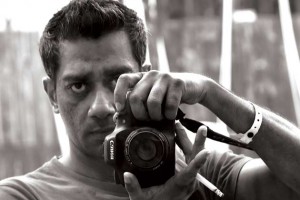
Qaushiq Mukherjee – or Q, as he is commonly known to the living and dead – has been a filmmaker difficult to ignore. One of the most radical voices in the last decade, he exploded onto the scene with the cult Bengali film ‘Gandu‘ a few years ago. ‘Tasher Desh‘, his next, a vivid, trippy adaptation of a Tagore story, actually gained an Indian commercial release, and impressed critics worldwide. Many have already declared his most recent film LUDO – which he has co-directed with Nikon – his most daring and audacious work. Its recent Indian premiere at the JioMAMI Mumbai Film Festival had audiences squirming in their seats, what with Q’s out-there experimentation with the blood/gore horror genre.
He has also directed one of the 11 segments of the upcoming experimental feature-length film ‘X – Past Is Present‘.
Here, he speaks about his constantly evolving sensibilities, independence, comfort zones, Ludo, and plenty more.
Tell us about the journey of LUDO so far.
A. Screenings have just begun. We started with Fantasia at Montreal – 4 festivals in total, so far. We are also going to Singapore, going to be in Denver. MAMI (Mumbai) was our fifth festival. So it’s only been 2 months that LUDO has been showing.
It is basically a horror film. We are calling it “gore fable” because it has a mythical connection, and that’s also because we wanted it to be an Indian horror film – not like regular Hollywood horror fare. So that makes it unique – in the sense that the horror factor in any horror film is practically the same. You go there to get scared. Now what this fear does to you – is where my interest lies. Also, in terms of crafting an experience for you by taking you into a certain world. With this, that was very much possible, where we take you into the monster’s world and show you how that scene happens. So that’s about it. It’s a fairly straight up movie with a twist in the middle rather than the end.
What about the gore factor?
A. It depends. If you’re a gore fan, then it is not gory at all. For anyone who is squeamish, it is really fucking gory. I mean people who squeamishly watch horror films. For them, it is going to be really hardcore. But I think the main thing is about the realism of the gore and that’s what we were trying to get. For the first time in India, we have fucking achieved that.
Nobody does gore in India anyway…
A. No, because we don’t have the prosthetics available. We just don’t have the stuff here which we can work with. So we had to get the prosthetics from France.
Is it your goal to make audiences squeamish?
A. That’s my main agenda. Practically speaking, normal does not excite me at all. I can understand why people would want to watch or make a film like ‘Lunchbox’ for example. It’s a killer film, but I have no interest in it. I am interested in the weird and I am interested in the cracks. I am interested in the problem points and the issues that we won’t want to face upto. I mean I have a socio-political leaning and it gives me sort of the opportunity to enter into any domain. For instance, pop culture – which is the domain that’s the only domain in india. It’s only pop culture. Nobody reads anything, nobody wants to see anything serious. What’s the point? It’s a waste of time. Nobody makes money in that. We are very dismissive about anything that has any meaning right now. As a culture, we should be aware that we are very very quickly becoming a sort of peppermint nation. So in that context, I am always enthusiastic to drive anything, any kind of wedge, any kind of spoke into the wheel.
So, mostly extreme filmmaking?
A. That’s where my interest grew from. I was never interested in cinema till I saw extreme movies.
And you hadn’t done much horror before LUDO…
A. We really struggled. There were two issues to confront and those two issues still have not been entirely sorted. But I want to make more, to understand things better. First of all, I was very scared to make a horror film. Because horror films are very technical. So if you don’t know the process of filmmaking really well, you can’t make horror films. It’s like making a comedy. These 2 genres, comedy and horror are both extremely technical and there is very little emotional play here. Since I started figuring out my aesthetics with a very indie sort of outlook – when I say indie I mean no money – which means you don’t have anything and you have to beg, pick and choose whatever you can. In that context, horror films were really tough to make. I’d written one more idea before but we did not make that film finally because we just didn’t know whether we will be able to. That’s why LUDO becomes our first practical horror film and it’s like a lesson in terms of what exactly one needs. Apart from that, if I had a choice, I would have started with a horror movie, or something that borders on horror – because extreme films by definition are always dealing with horror.
What about your ‘indie’ background and experience?
A. Now, this term is becoming very difficult to use. Especially when you go towards Andheri, you can’t use the word ‘indie’ anymore. I remember, in 2008, when we first made our website we used the words “indie alternative” in it and nobody had heard this word, so people would ask me “ what the fuck is this indie shit?” And now it’s really caught up big time and I’m not sure whether the semantics of the word are clear to people. Indie is very deceptive because it’s like a nickname for independent. For independence, you have to fucking struggle. For indie, you can just have a camera. Everything else works out.
And recovering money on indie films is increasingly difficult.
A. Not increasingly, it was never possible. There was nothing. You start with nothing and then slowly actually now it’s sort of – I won’t say looking up – but at least getting clearer. Like earlier, we would think “Oh yeah if I make a great film, things will happen. Then it becomes clear nothing happens. So therefore, you move on in life. One by one, we learn these lessons.
Have you figured out a way to generate revenue?
A. I would say that we have taken our first step in that direction. Till yesterday, we were trying to explain to people what the fuck we were doing. Nobody had a clue. Now that they have a clue and there is enough work to look at – “oh that’s an indie…that’s an indie…that’s an indie…” – there’s a possibility that something else might emerge. One big letdown was the internet. Because we’ve been all looking at it, at the VODs coming in, and the delay in that. The way things have gone with the internet being treated as real estate right now is kind of a little difficult right now. Basically, that’s not going to work right now. We know that. So what next. It’s like that. It’s a constant process.
Access to your uncut original films is difficult – the versions as intended to be seen by you.
A. Well, everyone watched ‘GANDU’ exactly how it was intended. It was shot on a 4-inch screen, and some people have watched it on a 4-inch screen. I don’t give a flying fuck. I am not a purist. I know that I have never had resources or the circumstances to watch Fellini in a beautiful way. I’ve never watched that. So I don’t give a fuck about Fellini. I have watched the worst Italian films, C-grade movies in a C-grade hall in Kolkata, and I cherish that. So I normally call it “low-fi”, which people are still trying to grapple. Low-fi is a different type of sound mechanic. High fidelity is something else, low fidelity is something else. It’s a totally different thing. It’s not high fidelity in a low cost. It’s a different aesthetic sense. It’s like poetry. You have different kinds of meters. In swimming, you have different ways that you can swim. But the breaststroke is not the same as freestyle. But in both you’re in water and you’re going somewhere. So how can you equate that? You cant equate these two. They are totally different things. They are forms by themselves. In fact, even further away from each other.
That’s how the low-fi, hi-fi example really works. The kind of work that I do is street work, like street photography, like street food., like street wear, I make street films. Which mean they are cheaper, they have different aesthetics, made on the street and sold on the street. So it’s a completely different paradigm. So in that way, my job was really difficult because I was not only trying to make a film. Most people say, “OK I have this crazy idea…I want to make a film…MY FILM.” I never thought that. I still don’t think that I am a very good filmmaker. I think that I am a hustler and I understand this logic. I see the gap. I see that this is required. There is no low-fi here and therefore I can be that low-fi guy. The moment people understand the semantics of that, there will be very many people who will come up and do far better work than I do. But currently that’s not the case. I mean I can count it on my hands the number of people who are actually engaged in low-fi filmmaking or music making. In music, you see them far more than film.
But street food, street wear, street photography – they’re individual activities, unlike filmmaking.
A. No. For street wear, you have to have a tailor or two. You have to make your mother sit in a stall.
But films involve many more people. How do you convince your DOP, actors, editor?
A. Same Way. The whole idea of low-fi film making is that you do most of the things yourself. So I ended up doing that. I shot, I did everything myself. Very few people I work with, and I still do that. Now we have a very clear division between the films that are funded and the films that are non-funded. There are films that I want to make which will never find funding. Does that mean I will never make a film? That’s a stupid way of thinking. Waiting for someone to produce your film? No chance. Which is why I became a producer. I realized that I have to produce my own film. And the logic – that the funder is not the producer – is still not clear to many people. Producer is a person who makes the film happen. So I needed that person. There is nobody else like that and that was me. So therefore, I was producing, directing, shooting, editing. Therefore, you have to be good at all this, or somewhat competent, if not good. So I think very much the ethos of what you said – that it’s an independent operation, it’s a small operation – is very much true. We are a small company. We run like that.
Doesn’t all this multi-tasking make it difficult to focus on any single thing?
A. I have often said this, and it’s a quote that I really like. “I can’t afford perfection”. SO fuck perfection. That’s an elitist thing. Europeans want perfection because they have money.
You also work with a set group of actors.
A. I think the small group helps because then it’s like a theatre group. In films, the ownership becomes a problem. The director thinks it is his film, the producer thinks it is his film, the stars and actors think it is their film. But the foley artist does not think it is his film or the union guy who comes to do the lights does not think it is his film.
There is a particular hierarchy that films have. But we are getting into a really political place here, because this is probably not the conversation we should be having, especially in this place. Basically it’s sort of a political thought that you are a group. It’s a group of people who are doing this. I am not the only one. I’m the face. I’m the guy who is talking but the backend is managed by these guys who have invested in this idea their whole life too. Now they are in it. They can’t go away. It affects you so hugely. In an artist’s case, maybe nobody else will work with them. This has happened after they’ve done my film, that people are not taking them or people are scared. In some way or the other, all these things happen and therefore they are taking that risk, therefore the idea of a group is to take the risk as a group and therefore, only if it succeeds, then the group goes ahead. It’s not just one director who is going and making some films with different actors.
Of course, I’m not ruling out anything because right now we are doing that. I just made a film where I worked with actors I have never worked with before. All of them are new. So our scene is also shifting and that’s all that matters really. The shift. This movement from one thing to the other. If I keep doing the same fucking thing, it’s completely useless. So that’s how I see it. I’m very much dependent. When you say independent, it has ‘depend’ inside the word, and independence is only economic. It’s not emotional independence. Emotionally, you’re dependent. I’m fully dependent on that Howrah location – not only the actor but everyone who lives there, the rickshawwalla, the chai walla. Because they are all part of my milieu. I’m dependent on them. If that rickshawwalla, while going by, looks at the camera, my shot is fucked, but he never looks. I don’t tell him. So I’m indebted to that place. I depend. I go back there to shoot because I know the rickshawwalla will not look and he will look exactly like how he is. So that’s also something that is very important for the independent film community: An ecosystem that you have to develop for the support.
Is this ecosystem difficult for films in Kolkata, and Bengal in general?
A. I’m finishing my first English feature. So I’m moving on. I mean, of course, language was an issue. I wanted to talk in Bengali. I wanted people to know that I’m a Bengali filmmaker and that’s achieved. I have said what I had to about Bengal and Kolkata. What I feel. And that’s what I did for the last 8 years. As a person, an artist, I am not limited by Bengalis or Bengal. But this was my starting point. I was born there. That was my previous identity. My name now is Q. It has nothing Bengali in it. No Bengali is called Q. And I don’t do Bengali things. It is difficult for someone to look at me and say that I’m a Bengali, if I don’t let that fact out. So I can hide it, that full identity, almost voluntarily. And I’ve been trying to do that for ages because Bengalis are morbid and it’s a very very very difficult place with very little hope.
Let me put that also in context. So most of my films are scathing criticisms of Bengalis, rather than celebrations. Celebrating one part maybe, but that’s not the part that Bengal celebrates. So in that way, I’m not even a Bengali. Kolkata on the other hand is a space. As a space, it is really a vital place for this kind of work. If I was anywhere else in the country, we wouldn’t have survived. It’s just because Kolkata lets you be. Kolkata is a place where throughout the last 60 years, you have found radicals residing there, working there and people sort of accepting them. Though not liking it at all, but still accepting. That is the thing that was keeping me in Kolkata. I guess I’m moving on. I spend most of my time away from Kolkata. Over the last year, that has happened. Over the last year, this English film has been made. Soon, more news will be out about the other stuff I’m doing.
You’ve changed genres in each film. What’s this fourth one about?
A. It’s a comedy. Narrative comedy, scripted, following one character – which I’ve never done. Everyone felt that I can’t do that. It’s turned out really well. People will be really surprised.
Was this a conscious decision?
A. Yes. Consciousness is about change. If you’re conscious, then you will change. If you’re not conscious, then you will try to stick on to what you did the last time. A risk is actually doing what you did the last time. That’s a risk because that’s been done already. You’ve expended that energy. And yes, if you’re superbly good at it and stuff, great. But I’m not. I’m a hustler. So I’m not an art filmmaker. I just made some arthouse films because I like the form. I like the lack of form. The fact that you’re allowed a lack of form. The moment you enter into the fiction cinema space, there are so many rules governing you that it becomes really tough to move. But I have made these decisions before and I have shown people that I can keep you hooked even when there is no fucking story. You can’t make head or tail of what’s going on. But you’re still watching, right? So, there is some merit, right?
I know something. That’s how people are probably getting know more engaged with that idea. Because when Gandu first came in, there was a state of shock people went into. People couldn’t talk to me. I mean, industry people: people you want to work with, funders and producers and co-producers. It was scary for them. “What the fuck will this guy do next?”
Now they’ve realized that I’m not “Gandu”. I’m a “Gandu”, but I can be very many different things also, and that is a good thing. That gives them comfort. That gives me another area to infiltrate. We started with that. The idea of infiltration. The idea of doing everything that people are not doing.
More acceptance in that industry now?
A. In a way, for sure. Accepting for me as an artist. What I do is still nebulous. But as an artist, they have to admit that is not a fly-by-night scene. They’re here. They are not going away. It’s just coming – relentless. Every year, we have a new film. This year we have so many releases. Now we are looking at films that are going to get released. Earlier we were just doing films which would never get released. So mixing it up is a good idea and people are slowly starting to understand that. Things are changing. It is not the same India as it was 5 years back when Gandu was made. It’s a very different India and people know that it is true now. That these things happen. There have been many films made after Gandu which were sort of leaning in that direction. The interesting thing for me is to always do it first. Go there first, and then people follow. Then I feel very good that “Cool. See, that worked out.” Now they are not complaining about the abuses any more. People said people will kill you if you do this. Nobody killed me. I’m alive. Nothing happened.
Isn’t this desire to be the first one also a big pressure on you?
A. But that’s consciousness. That’s why I’m so confident about that. I’m not so confident about doing one thing, like Yashraj films. Let me make some marriage videos – I am not good at marriage videos, I’m not interested in marriage, so I can’t make ten marriage videos. I’ve always been very restless and I do many things at the same time. I can’t be doing one thing. So I need to move. When you’re doing ten different things, when you’re trying ten new things, one is bound to happen. Next lot, again ten, and one thing will happen. That’s the way to move forward.



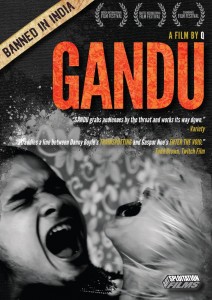

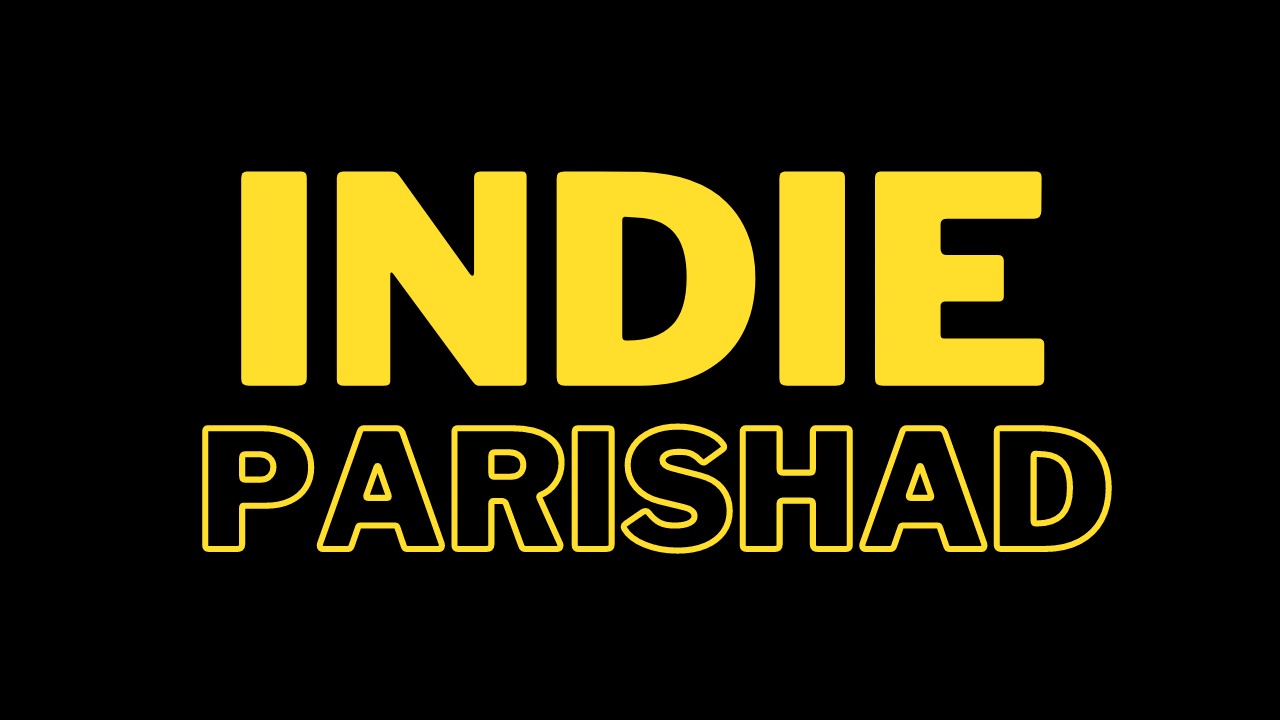
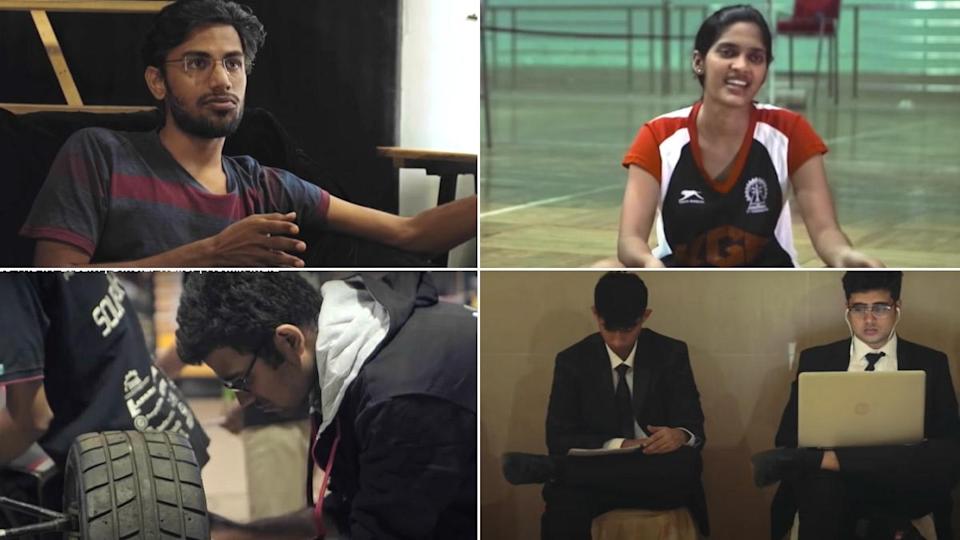
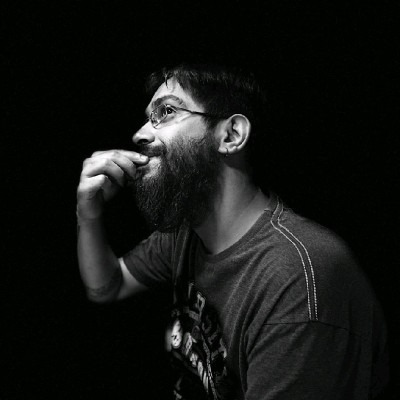

Leave A Comment
You must be logged in to post a comment.